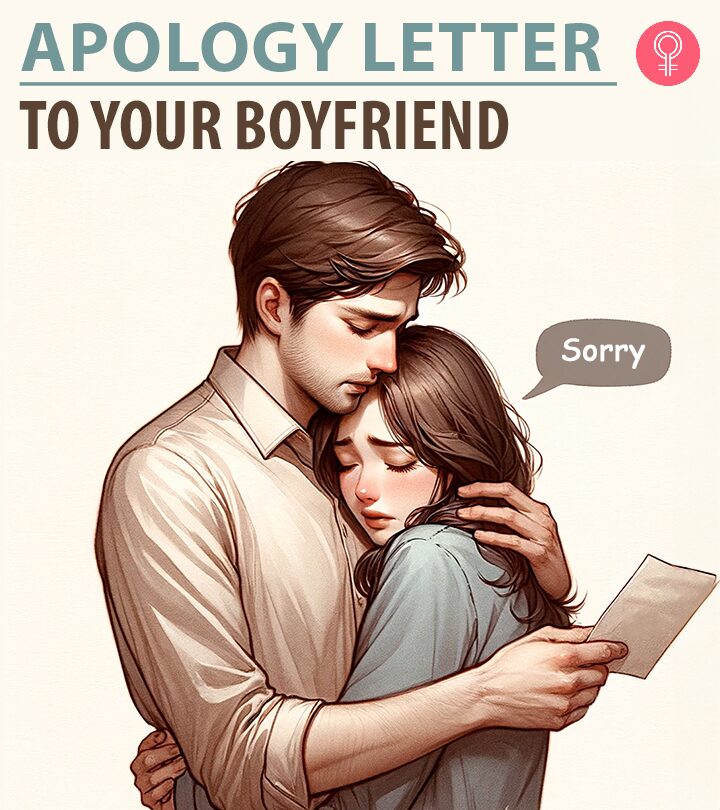Apologizing can be tough, especially when you’re trying to express remorse without uttering the overused phrase “I’m sorry.” The good news? You don’t always have to rely on these two words to make things right. In relationships, actions often speak louder than words, and showing sincerity can go a long way in mending hurt feelings. This article will dive into practical, heartfelt ways to apologize to your boyfriend without saying “sorry,” helping you rebuild trust and strengthen your bond.
Why Apologizing Matters in Relationships

Apologies are an essential part of any relationship. Misunderstandings, disagreements, or mistakes are inevitable, but how you handle them can define the strength of your bond. When done right, an apology demonstrates maturity, empathy, and the willingness to work through conflicts.
However, constantly saying “sorry” without action can make apologies feel empty. So, how do you convey genuine remorse without falling back on a simple “sorry”? Let’s explore.
Understanding the Power of Actions Over Words
It’s often said that actions speak louder than words. When you’re trying to apologize, it’s not just about what you say—it’s about what you do. Instead of offering a routine “I’m sorry,” show through your actions that you recognize your mistake and are committed to making things right.
Acknowledge the Issue

Before you can apologize meaningfully, it’s essential to acknowledge what went wrong. Reflect on the situation and identify why your boyfriend might be upset. Understanding his perspective is the first step toward making amends.
Example:
Instead of saying “I’m sorry for snapping at you,” try, “I realize I was short with you earlier, and that wasn’t fair.”
Take Responsibility
Own up to your actions without deflecting blame or making excuses. Taking responsibility shows that you’re mature and capable of recognizing your own faults.
Example:
“You’re right—I didn’t handle that well. I can see how that hurt you.”
Express Empathy and Understanding
Showing empathy lets your boyfriend know that you understand how your actions impacted him. This is crucial in conveying a heartfelt apology without needing to say “sorry.”
Example:
“I can see that my words hurt you, and I never want to make you feel that way.”
Use Nonverbal Cues to Show Remorse
Your body language, tone of voice, and facial expressions can often convey more than words ever could. Being mindful of how you communicate nonverbally can help you express genuine regret.
Make Eye Contact
Looking your boyfriend in the eyes during difficult conversations can show vulnerability and sincerity. It tells him that you’re present, taking the matter seriously, and willing to resolve the conflict.
Offer a Gentle Touch
Physical contact, like holding hands or a gentle hug, can communicate care and affection. If appropriate, a touch can serve as a nonverbal way to reconnect emotionally.
Use a Calming Tone
When you’re apologizing, the tone of your voice is key. Avoid sounding defensive or irritated. Instead, use a calm and soft tone to show that you’re genuinely remorseful and open to resolving the issue.
Make It Up Through Actions

Saying the right things is only part of the equation. Following through with actions that demonstrate change can help repair the situation and show that you’re serious about making things better.
Do Something Thoughtful
A small gesture, like preparing his favorite meal, planning a surprise date, or helping him with a task, can go a long way in showing that you care and are committed to making up for your mistake.
Example:
After a misunderstanding, you could say, “I know I upset you earlier, so I made your favorite dinner as a peace offering.”
Write a Note or Letter

If verbal apologies are hard for you, consider writing a heartfelt note or letter. Sometimes it’s easier to express emotions in writing, and your boyfriend might appreciate the effort you put into reflecting on your feelings.
Example:
“I’ve been thinking about our argument, and I want to explain why I reacted the way I did. I value you and never want to hurt you.”
Offer a Compromise or Solution
Apologies are about more than just saying you regret something. Offering a solution or compromise can show that you’re willing to make changes to prevent the issue from happening again.
Example:
“I understand why you’re upset, and from now on, I’ll try to be more mindful of how I speak when I’m frustrated.”
Show Commitment to Change

No apology is complete without a commitment to change. Actions that demonstrate growth and effort will prove that you’re truly invested in improving your relationship.
Ask for Feedback
After an apology, it’s helpful to ask your boyfriend for feedback on how you can improve. This shows that you’re open to learning and growing, and it gives him the opportunity to voice his thoughts and concerns.
Example:
“I want to make sure I handle things better next time. Is there something specific you’d like me to work on?”
Follow Through on Your Promises
If you’ve promised to change a certain behavior, make sure to follow through. This builds trust and reinforces your commitment to bettering the relationship.
Example:
If you’ve agreed to communicate more calmly during arguments, make a conscious effort to do so the next time a disagreement arises.
Show Patience and Persistence
Healing after a disagreement takes time. Be patient if your boyfriend needs time to forgive, and continue showing through your actions that you’re dedicated to making things right.
When Words Are Necessary
Other Alternatives to “Sorry”
Sometimes, words are necessary, but that doesn’t mean you have to use “sorry” to apologize. There are plenty of other phrases that convey remorse and understanding without relying on those two words.
“I Regret What Happened”
This phrase shows that you recognize the mistake and feel remorseful, but it shifts the focus to how you plan to make things better.
“I Didn’t Mean to Hurt You”
Sometimes, intentions get lost in the heat of the moment. Acknowledging that your actions were hurtful, even if unintentional, can help open the door for forgiveness.
“I’ll Do Better”
This is a simple but powerful promise. When you tell your partner that you’ll do better, you’re committing to change and improvement in the relationship.
Learning from Mistakes: The Key to Growth in a Relationship
Apologizing is an opportunity for growth—not just for you but for your relationship as well. Each time you work through an issue and apologize effectively, you and your boyfriend can become closer and more connected.
Understand Each Other’s Communication Styles
Every relationship is unique, and understanding how your boyfriend prefers to communicate can improve your ability to resolve conflicts in the future. Some people appreciate verbal apologies, while others respond more to actions.
Practice Empathy
Apologies are most effective when they come from a place of empathy. Practicing empathy in your relationship will help you better understand each other’s needs and emotions, making future conflicts easier to navigate.
Conclusion
Apologizing Without Saying “Sorry” Strengthens Your Relationship
Apologizing without using the word “sorry” forces you to be more thoughtful and intentional in how you make amends. It helps you focus on taking responsibility, offering genuine remorse, and showing through your actions that you’re committed to change. In doing so, you strengthen not only your relationship but also your ability to communicate and resolve conflicts effectively.
Remember, the goal isn’t just to patch things up quickly—it’s to ensure that your relationship grows stronger from the experience. With empathy, patience, and sincerity, you can apologize in a way that truly resonates with your boyfriend and helps your relationship flourish.
FAQs on How to Apologize To Your Boyfriend Without Saying Sorry
Why should I avoid saying “sorry” when apologizing?
Overusing the word “sorry” can make it lose meaning. Sometimes, a more thoughtful approach involving actions and empathy is more effective in showing genuine remorse.
How can I apologize without sounding defensive?
Focus on taking responsibility for your actions without deflecting blame. Use empathetic language to show that you understand your boyfriend’s feelings and are committed to resolving the issue.
What if my boyfriend doesn’t accept my apology right away?
Give him time and space if needed. Healing takes time, and consistent actions over words can help rebuild trust. Show patience and continue to demonstrate your commitment to change.
How can I make sure my apology is sincere?
To ensure sincerity, reflect on the situation and understand why your boyfriend is hurt. Offer an apology that acknowledges the impact of your actions and includes a plan for improvement.
What’s the best way to apologize when I can’t find the right words?
If words fail, consider writing a letter, making a thoughtful gesture, or offering a compromise. Sometimes actions, like doing something kind or resolving the issue in a practical way, can be more meaningful than words.


